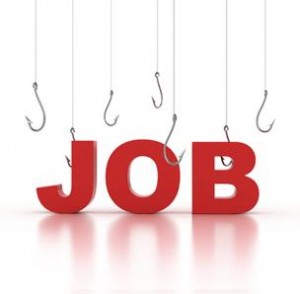Top 9 Things you shouldn’t say or do during an interview

 You may think the most important thing when stepping into an interview are your qualifications, wrong. What you say and do during an interview contributes largely to the interviewers final decision of hiring you or shredding your application right after you leave that interview room. The following is a short but valuable list of things you shouldn’t do or say during that oh so very important job.
You may think the most important thing when stepping into an interview are your qualifications, wrong. What you say and do during an interview contributes largely to the interviewers final decision of hiring you or shredding your application right after you leave that interview room. The following is a short but valuable list of things you shouldn’t do or say during that oh so very important job.
- “I hate my previous boss!”
Any reference of your former employer is not seen as being professional in a any way. Avoid talking about your previous job and the likes and dislikes of your previous workplace; you’re at the interview to promote yourself and your brand and not to discredit your former employer.No matter how you feel about where you worked previously, always try to frame your work history in a positive light. If you really hated your last boss, only bring it up when asked for the reasons you left your job but also keep that short and brief “Clashes within the company are not good for business they hinder progress, I’m looking forward to working with a team that avoids personal clashes”
-
“What are your benefits?”
It’s inappropriate to discuss sick leave and vacation days at an interview; I mean you don’t even have the job yet. If you’re really that concerned about these issues, you usually can research a company in advance to find out about its policies or about the corporate culture.
Wait until you’ve gotten an offer or are further down the road before you can broach this subject or it may appear that you only care about what you’re getting out of it rather than what you can put into the organisation and how you can grow with it.
-
“What does your company do?”
In the job market like today’s where there are more candidates for most positions than there are jobs, you have to do your research about the company you are interviewing with in order to stand a fighting chance. Know your stuff.
When you ask questions about what the company does, or about its history, it reveals that you haven’t spent adequate time doing your homework and preparing for the interview. Avoid turning the interview session into an information gathering session.
- “That kind of work doesn’t appeal to me.”
We all hate standing by the photocopying machine and copying documents all especially with the technology of being able to scan and email them to each other.Avoid mentioning all the ‘chores’ you don’t like doing in the office.Even if you’re asked about what aspects of work you don’t find enjoyable, always try giving a polite or short answer such as; “Well, I’m not a huge fan of making copies, but I understand that’s part of the job so I’m willing to do it.”
-
“I love playing with my dog in the mornings.”
Revealing too many personal politics, religion and activities you take part in over the weekend during an interview is unprofessional.
As a job candidate in the process of offering too much personal information, your relevant skills and experience become diluted by other nonessential information, it tends to take the interview in a direction that may not serve you that well.

- Don’t carry too much stuff into the interview:
You want to come across as the consummate professional type, not a harried traveller navigating through airport security. A slim portfolio or folder to carry extra resumes, pad and pen is all you should have.Ask for a place where you can store your overcoat or heavy bag while you are interviewing. Don’t carry a beverage into the interview but if they offer you something during your meeting, always take the water. If you get thirsty later, you’ll appreciate it (and unlike soda, coffee and tea, water dries clear should you spill it.)

- Don’t brag about being a ‘perfectionist’:Many interviewers see this as a red flag; it means you’re very difficult to work with and will never let go of a project. Say, instead, you’re detail-oriented.
- Avoid confessing to multiple weaknesses:Interviewers commonly ask job applicants to describe their biggest weakness to see if people are humble and self-aware enough to identify something they can improve upon.That doesn’t mean you should now give them a whole list of faults. Name one weakness that is relevant to the job, and explain how you are working to improve that skill.
- Giving obviously rehearsed answers:It’s important that you seem like someone that at least one person can relate to, natural and likable, as well as competent and smart. Show your personality since the interviewer is checking you out for a workplace fit.I think of this as the “airport test”: If the interviewer got stuck in the airport with you for several hours, would he or she consider you a desirable co-worker? Or would you be the kind of person who drove everyone crazy?
And with all that’s been said, go and ace that interview!
Mbali Ntuli





